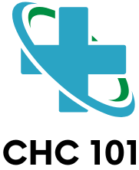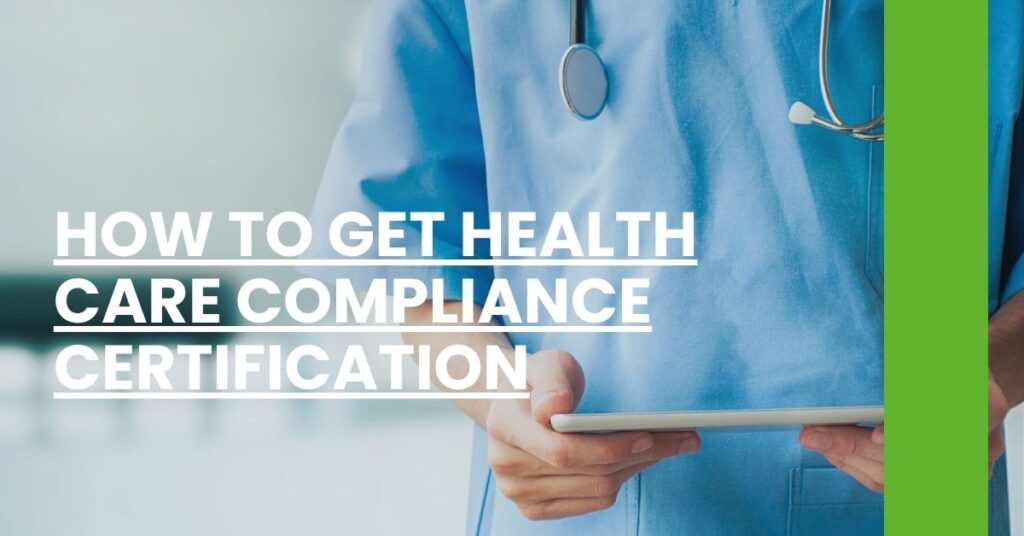How to get health care compliance certification can set you on the path to a rewarding healthcare career.
- Essential Prerequisites: Understand the education and experience needed for certification.
- Exam Preparation: Master strategies for the compliance certification exam.
- Career Advancement: Unlock job opportunities with your certification.
Achieve health care compliance certification and elevate your professional standing.
- Understanding Health Care Compliance Certification
- Why Pursue a Health Care Compliance Certification?
- Educational Prerequisites
- Choosing the Right Health Care Compliance Certification Program
- Detailed Steps to Attain Certification
- Exam Preparation Strategies
- Maintaining Certification and Continuing Education
- Career Opportunities and Growth
- Comprehending the Accrediting Bodies
- Navigating the Application Process
- Legal and Ethical Considerations in Health Care Compliance
- Conclusion: Taking The Next Steps
Understanding Health Care Compliance Certification
Health Care Compliance Certification serves as a lighthouse in the stormy seas of the healthcare regulatory environment. It’s a mark of expertise and credibility for those navigating through complex healthcare laws, regulations, and standards. Specifically, the Certified in Healthcare Compliance (CHC)® credential is a beacon for healthcare professionals signaling their dedication to upholding legal and ethical standards. If you’re exploring how to get health care compliance certification, you’re taking a proactive step towards enhancing your professional stature, ensuring your organization adheres to necessary regulations, and providing a benchmark for your compliance knowledge.
Who Should Consider Certification?
Compliance certification isn’t just for anyone. It’s tailored for those encompassing roles such as compliance officers, managers, auditors, legal counsel, healthcare administrators, and others responsible for ensuring that healthcare organizations steer clear of compliance-related pitfalls. Achieving this certification is a staunch declaration of one’s dedication to the integrity and quality of healthcare administration.
Why Pursue a Health Care Compliance Certification?
Dive into the world of health care compliance certification and discover a trove of benefits. Not only does it arm you with the knowledge necessary to safeguard your organization against non-compliance risks, but it also opens doors to career advancement and instills a disciplined approach to your professional development.
The Benefits Unfolded
- Professional Credibility: You’ll join a respected cadre of practitioners, setting you apart as a committed and knowledgeable professional.
- Knowledge Empowerment: The path to certification enriches your understanding of the intricate compliance landscape.
- Career Advancement: With this certification, your resume shines, showcasing your specialized skills to current and prospective employers.
Educational Prerequisites
Before embarking on the certification voyage, it’s crucial to anchor yourself with the necessary academic and practical experience.
Charting The Course
- Relevant Work Experience: Accrue professional time in the compliance winds, maneuvering through healthcare’s regulatory frameworks.
- Accredited Learning: Anchor your journey with a strong foundation from a CCB-accredited educational program.
- Continuing Education: Ongoing education keeps your certification sails billowing, so make sure to compile your Continuing Education Units (CEUs).
Choosing the Right Health Care Compliance Certification Program
Embarking on the quest for the right certification program is akin to charting a course for unexplored territories. It calls for prudence and a well-informed map.
Navigational Aids
- Accreditation: Confirm that the program’s compass is set by recognized bodies like the Compliance Certification Board (CCB).
- Curriculum Relevance: Seek out courses that cover the expanse of the healthcare compliance sea and not just a narrow strait.
- Expertise of Faculty: The guidance of seasoned captains in the form of experienced instructors is indispensable.
Detailed Steps to Attain Certification
Conquering the certification process is a journey with distinct milestones along its path.
A Step-by-Step Expedition
- Meet Pre-qualifications: Ensure you have the required nautical miles in compliance work and education.
- Apply for the Exam: Navigate the application process like a seasoned sailor reading the stars.
- Study and Prepare: Meticulously prepare for the various challenges that the certification exam presents.
- Pass the Exam: Surpass this cresting wave with adept knowledge and preparation, leading to the Certificate in Healthcare Compliance shores.
Exam Preparation Strategies
Every successful voyage requires a well-planned strategy. Preparing for the health care compliance certification exam is no leisurely sail; it demands a regimented approach to mastering the material.
Charting Your Study Course
To help steer your studies in the right direction, consider the following strategies:
- Knowledge Domains: Master the seven content areas of the CHC exam, spanning from standards, policies, and procedures to risk assessment and education.
- Healthcare Compliance Events: Engage with the community of compliance professionals in symposiums and webinars.
- Practice Exams: Evaluate your readiness and adjust your tactics with tools like the CHC Practice Examination.
In this odyssey of preparation, keep your compass calibrated, utilize your resources wisely, and remember that every navigational challenge conquered brings you one nautical mile closer to your distinguished certification.
Maintaining Certification and Continuing Education
Your health care compliance certification is not just an accolade; it’s a commitment to ongoing professional excellence. Like any valuable certification, it requires regular maintenance to confirm that your expertise remains sharp and up-to-date.
Continuous Learning
- Earning CEUs: Stay abreast of the latest compliance trends and regulations by earning Continuing Education Units (CEUs). These are not just checkboxes to mark; they’re opportunities to expand your knowledge and keep your skills honed.
- Tracking CEUs: It’s up to you to record and report your ongoing education. And remember, the CEUs you earn aren’t just for maintaining certification; they’re investments in your professional longevity.
Recertification
Recertifying solidifies your standing as a devoted health care compliance professional. Typically, you’ll need to renew your certification every two or three years, depending on the certification body’s guidelines. This process not only underscores your continued competence but also signals to the healthcare community your enduring dedication to compliance excellence.
Career Opportunities and Growth
Attaining a health care compliance certification can be the master key that unlocks a myriad of professional doors. Let’s explore the horizon that certification can broaden for your career trajectory.
Navigating Your Career Path
As a certified compliance professional, your career compass can point you towards numerous opportunities:
- Leadership Roles: Your certification acts as a testimony to your preparedness for upper-management positions.
- Specialized Areas: Delve deeper into specific compliance sectors such as research, privacy, or clinical areas.
- Consultancy: Be the beacon for other healthcare organizations as an expert advisor, guiding them through the regulatory fog.
Certification equips you with the tools to not only join but lead the charge in improving the healthcare system’s integrity.
Comprehending the Accrediting Bodies
To chart your course towards obtaining a health care compliance certification, it’s essential to recognize the key players who validate and uphold the certification standards.
Leading Accreditors
- Compliance Certification Board (CCB): A pivotal entity in the health care compliance realm, CCB accredits various compliance certifications — think of them as the coast guard of certification waters.
- Accredited Programs: Besides CCB, look for certification programs accredited by reputable organizations that underscore the reliability and recognition of your certification.
Understanding the role and requirements of such bodies is crucial to ensuring your compliance education and certification is universally recognized and respected.
Navigating the Application Process
Deciding to apply for certification is a decisive moment in your professional journey. This step is where your preparation takes a concrete form, culminating in the certification exam.
Application Essentials
- Fees and Scheduling: Start by understanding the application fees and scheduling parameters. They will vary depending on whether you are a member of a professional body like HCCA or not.
- Exam Day: On the day itself, be prepared for a rigorous test of your comprehension of compliance laws, regulatory requirements, and ethical standards.
The application process for the health care compliance certification exam is straightforward, but engaging with it requires attention to detail and an understanding of the administrative requirements.
Legal and Ethical Considerations in Health Care Compliance
Health care compliance is more than just adhering to rules; it’s about being the ethical backbone of health care administration.
Upholding The Standards
Understanding the convergence of legalities and ethics is fundamental to your role:
- Compliance Plans and Regular Audits: Establish and refine compliance plans, conduct regular audits, and ensure continuous training to meet these high standards.
- Ethical Frameworks: It’s also about the moral compass you provide to your organization, making certain that patient care is never compromised by non-compliance or ethical breaches.
Conclusion: Taking The Next Steps
If you’re ready to dive into the world of health care compliance certification, remember that this journey is about more than just professional development—it’s a commitment to the highest standards of care. So chart your course, hoist your sails, and set forth on the path of becoming a beacon of integrity in the healthcare community. Your quest on how to get health care compliance certification could be the most impactful voyage of your professional life.

